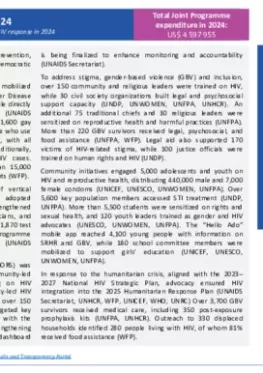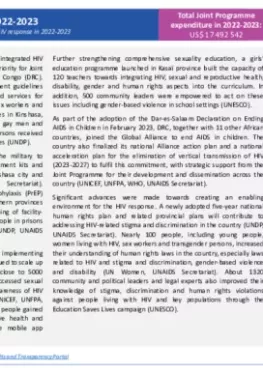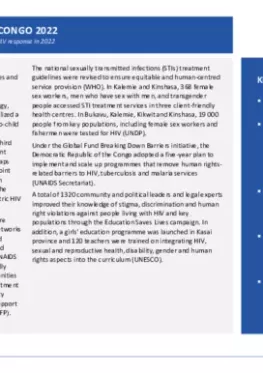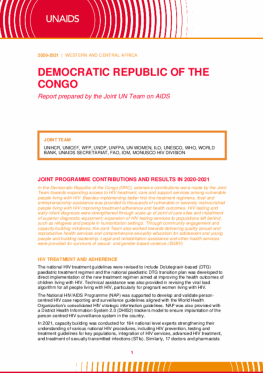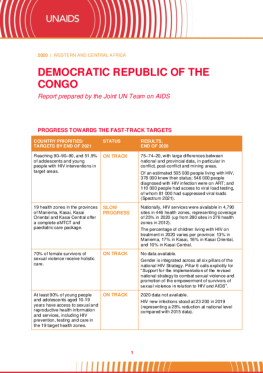|
Democratic Republic of Congo
In 2024, the Joint Programme advanced HIV prevention, treatment, and rights-based interventions in the Democratic Republic of Congo.
A six-month national HIV prevention campaign mobilized government, UN agencies, civil society, PEPFAR, Center Disease Control, and private partners, reaching over 4,300 people directly and millions more via SMS and visual materials (UNAIDS Secretariat). HIV testing reached 2,200 sex workers, 1,600 gay men and other men who have sex with men, 860 people who use drugs, 440 prisoners, and 170 uniformed personnel, with all positives referred for treatment (UNDP, UNHCR) Additionally, 15,800 prisoners were tested, identifying 100 HIV cases. Nutritional and medical support benefited more than 15,000 malnourished people living with HIV and 9,500 TB patients (WFP).
A national roadmap for the triple elimination of vertical transmission of HIV, syphilis, and hepatitis B was adopted (UNICEF, WHO), while paediatric efforts were strengthened through provincial action plans, training of 80 clinicians, and distribution of 770 early infant diagnosis cartridges and 1,870 test kits. (UNICEF). The community-led “mentor-mother” programme further improved outcomes and reduced costs (UNAIDS Secretariat, UNICEF).


